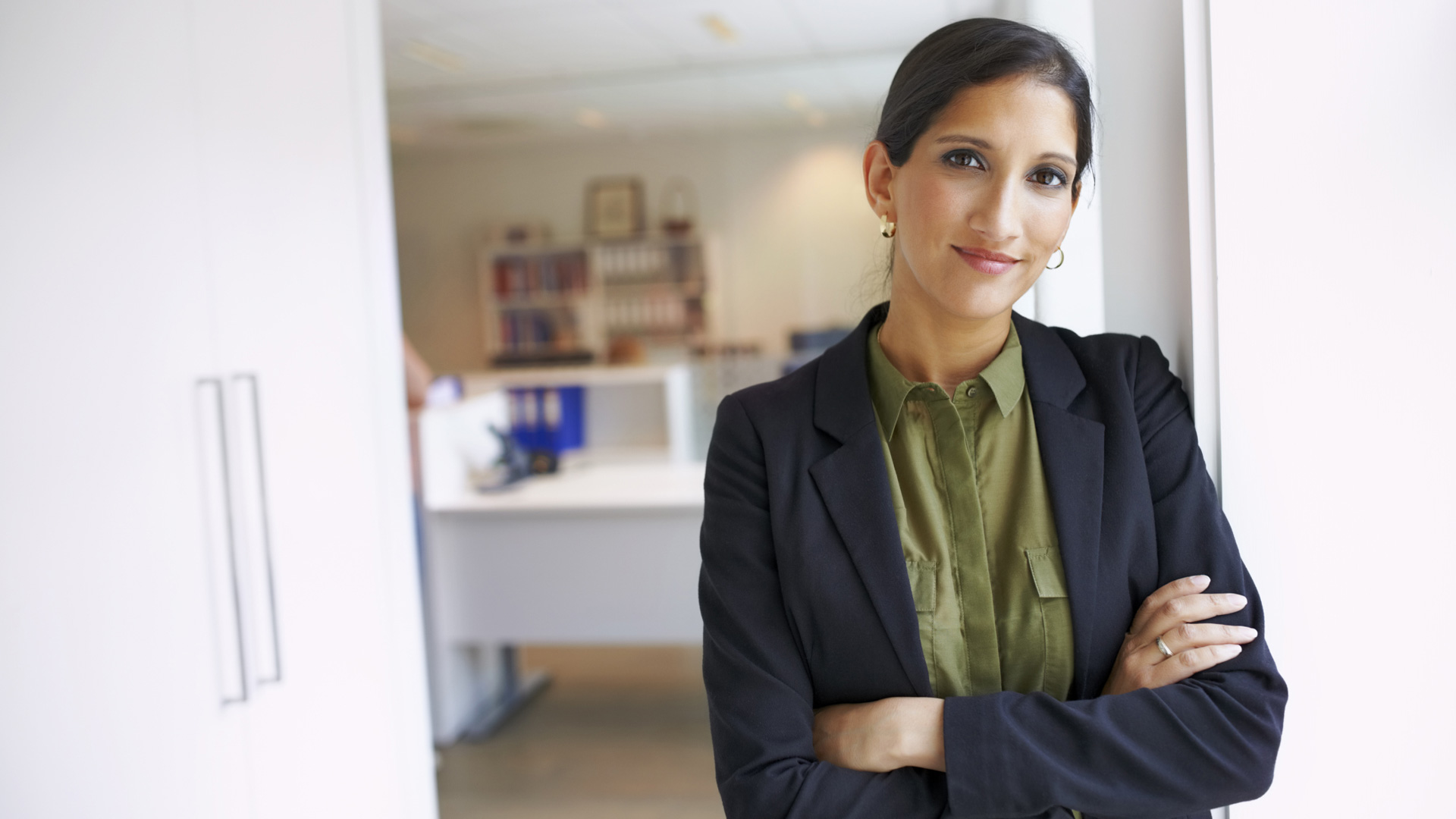Showing posts with label anxiety awareness. Show all posts
Showing posts with label anxiety awareness. Show all posts
Wednesday, 16 July 2014
Monday, 9 June 2014
11 Public Figures Who Will Make You Rethink What You Know About Anxiety Disorders
Public figures in Hollywood are splashed across glossy pages as they take their kids to the store or go to the gym next to headlines like, "Stars! They’re Just Like Us!" -- and while these errands do make them relatable -- that's usually where the comparisons end.
When we look at public figures, we usually tend think of them as the picture of poised and confident. But even though we're exposed to what feels like every ounce of their lives through the smooth pages of a magazine, there are still private battles they must face -- and that includes addressing their emotional well-being when it becomes jeopardized.
No matter which way you look at it, there's a stigma that's attached to emotional and mental health issues -- particularly when it comes to anxiety disorders. And even though the condition affects nearly 40 million American adults, including those public figures who appear so cool under pressure, there still can be a barrier when it comes to understanding what it’s like to suffer from chronic fear and stress. In order to gain that understanding our culture needs -- and to realize that suffering from anxiety doesn't have to be debilitating -- below find 11 incredible public figures who will make you rethink what you know about anxiety and panic disorders.
Olivia Munn

The actress best known for her confident demeanor on HBO's "The Newsroom," has openly admitted that she has severe social anxiety. "If I were to walk into someone’s birthday party, I’d have a bad anxiety attack," she told People magazine in 2013. Munn's aversion to social situations also triggers trichotillomania, a condition related to nail-biting and skin-picking that causes sufferers to pull out their own hair -- in Munn's case she pulls out her eyelashes. In order to manage the condition, she says it's about overcoming the idea of what makes you so fearful. "The idea -- that’s what anxiety is," she told Access Hollywood in March. "It's interpreting what I think things are going to be [like] and it ends up never being as bad as I think it’s going to be."
John Mayer
We listen to his poetic lyrics during times of distress, but the pop singer also has private distresses of his own. Prone to anxiety, Mayer keeps anti-anxiety medication on hand in case of a panic attack, Everyday Health reported.
We listen to his poetic lyrics during times of distress, but the pop singer also has private distresses of his own. Prone to anxiety, Mayer keeps anti-anxiety medication on hand in case of a panic attack, Everyday Health reported.
Dan Harris
The "Nightline" and "Good Morning America" anchor is the picture of relaxed in his news chair, but not after an on-air panic attack in 2004 forced him to face his growing burnout and a newly-developed problem with drugs like ecstasy and cocaine. "I was overtaken by a massive, irresistible blast of fear," Harris recently wrote of his attack in an ABC News blog. “It felt like the world was ending. My heart was thumping. I was gasping for air. I had pretty much lost the ability to speak. And all of it was compounded by the knowledge that my freak-out was being broadcast live on national television."
The "Nightline" and "Good Morning America" anchor is the picture of relaxed in his news chair, but not after an on-air panic attack in 2004 forced him to face his growing burnout and a newly-developed problem with drugs like ecstasy and cocaine. "I was overtaken by a massive, irresistible blast of fear," Harris recently wrote of his attack in an ABC News blog. “It felt like the world was ending. My heart was thumping. I was gasping for air. I had pretty much lost the ability to speak. And all of it was compounded by the knowledge that my freak-out was being broadcast live on national television."
After a drastic life change and discovering meditation, Harris penned the book 10 Percent Happier, which delves into how the practice can make a significant impact on your life. Since discovering mindfulness, Harris says he can get a much better handle on high-stress situations. "Meditation is a tool for taming the voice in your head. You know the voice I'm talking about. It's what has us constantly ruminating on the past or projecting into the future," he wrote. "To be clear, meditation won't magically solve all of your problems ... but meditation is often effective kryptonite against the kind of epic mindlessness that produced my televised panic attack."
Barbra Streisand

When you’re one of the world's biggest Broadway powerhouses, it's easy to get caught up in the pressure of performing. Streisand is no exception and has long spoken out about her tendency to experience intense stage fright and anxiety before stepping into the spotlight. She told Oprah Winfrey in 2006 that she even takes anxiety medication before going onstage.
John Steinbeck
He penned some of the most notable novels of his time, including The Grapes of Wrath and East of Eden, but during his prominent lifetime, Steinbeck was also challenged with emotional health problems. The author suffered from anxiety and manic depression, and sought treatment from psychologist Gertrudis Brenner in order to deal with the disorder.
He penned some of the most notable novels of his time, including The Grapes of Wrath and East of Eden, but during his prominent lifetime, Steinbeck was also challenged with emotional health problems. The author suffered from anxiety and manic depression, and sought treatment from psychologist Gertrudis Brenner in order to deal with the disorder.
Kim Basinger
The Oscar-winning actress known for her roles in "L.A. Confidential" and "8 Mile" struggled with anxiety throughout the course of career and relied on medication to help her manage her panic disorder. She told People magazine in 2013 that after battling agoraphobia, she was ready to take charge of her fears and her emotional health. "Now I wake up and enjoy life," she said. "I didn’t want to live on drugs. I wanted to face everything I was afraid of."
The Oscar-winning actress known for her roles in "L.A. Confidential" and "8 Mile" struggled with anxiety throughout the course of career and relied on medication to help her manage her panic disorder. She told People magazine in 2013 that after battling agoraphobia, she was ready to take charge of her fears and her emotional health. "Now I wake up and enjoy life," she said. "I didn’t want to live on drugs. I wanted to face everything I was afraid of."
Khalil Greene
The pressure to perform doesn't just mount among artists and performers, but on sports fields as well. As an infielder for the St. Louis Cardinals in 2009, Greene went on the disabled list after being diagnosed with social anxiety disorder. "[Baseball] is a source of a lot of joy, but it's also a source of a lot of frustration and sadness and fear," Greene told USA Today shortly after he was diagnosed. "It's difficult to deal with, because it is something I really enjoy doing, but it has become at times like a love-hate relationship."
The pressure to perform doesn't just mount among artists and performers, but on sports fields as well. As an infielder for the St. Louis Cardinals in 2009, Greene went on the disabled list after being diagnosed with social anxiety disorder. "[Baseball] is a source of a lot of joy, but it's also a source of a lot of frustration and sadness and fear," Greene told USA Today shortly after he was diagnosed. "It's difficult to deal with, because it is something I really enjoy doing, but it has become at times like a love-hate relationship."
When that relationship caused chronic stress, Greene decided to take a step back. "The problem is when you're in a high-stress profession like that where the challenges are so great, moderate anxiety can sometimes erupt into an anxiety disorder," clinical psychologist Charles F. Brady told the MLB. And Greene isn't the only one -- other baseball players like Aubrey Huff, Dontrelle Willis and Joey Votto all have admitted to dealing with anxiety disorders.
Emma Stone

The quirky "Spiderman" star told Vogue magazine that she used to suffer from severe panic attacks as a child. "I was just kind of immobilized by it," she explained. "I didn't want to go to my friends' houses or hang out with anybody, and nobody really understood." Stone took control of the disorder by going to therapy and discovering her place in theater -- and although she still experiences anxiety, she knows how to better manage it by channeling her energy into work and fun activities.
Whoopi Goldberg
The funny actress and co-host of "The View" experiences anxiety through a specific fear of flying. According to Everyday Health, Goldberg looked into several treatment options for her phobia and opted for exposure therapy, where she slowly addressed her fear through a sponsored airplane course. She discussed her experience on "The View" after completing the course.
The funny actress and co-host of "The View" experiences anxiety through a specific fear of flying. According to Everyday Health, Goldberg looked into several treatment options for her phobia and opted for exposure therapy, where she slowly addressed her fear through a sponsored airplane course. She discussed her experience on "The View" after completing the course.
Abraham Lincoln
Praised as one of the most forward-thinking political figures of all time, Abraham Lincoln ranks as one of the most well-known leaders in history. However, along with a tumultuous country, Lincoln struggled with his mental health, including severe anxiety and depression. In a 2005 essay published in The Atlantic, writer Joshua Wolf Shenk explained how the president’s condition influenced his leadership, arguing that just because someone suffers from a mental health disorder, doesn’t mean you're unfit to make an impact:
Praised as one of the most forward-thinking political figures of all time, Abraham Lincoln ranks as one of the most well-known leaders in history. However, along with a tumultuous country, Lincoln struggled with his mental health, including severe anxiety and depression. In a 2005 essay published in The Atlantic, writer Joshua Wolf Shenk explained how the president’s condition influenced his leadership, arguing that just because someone suffers from a mental health disorder, doesn’t mean you're unfit to make an impact:
Lincoln did suffer from what we now call depression, as modern clinicians, using the standard diagnostic criteria, uniformly agree. But this diagnosis is only the beginning of a story about how Lincoln wrestled with mental demons, and where it led him. Diagnosis, after all, seeks to assess a patient at just a moment in time, with the aim of treatment. But Lincoln's melancholy is part of a whole life story; exploring it can help us see that life more clearly, and discern its lessons. In a sense, what needs "treatment" is our own narrow ideas -- of depression as an exclusively medical ailment that must be, and will be, squashed; of therapy as a thing dispensed only by professionals and measured only by a reduction of pain; and finally, of mental trials as a flaw in character and a disqualification for leadership.
http://www.huffingtonpost.com/2014/06/02/public-figures-anxiety_n_5411993.html?ir=Healthy+Living
Sunday, 8 June 2014
Thursday, 29 May 2014
STRESS LEVELS ARE LOWER AT WORK
Ever feel like escaping to the office
after a long day at home? Sounds counterintuitive but according to a new Penn
State study, that's exactly how many of us feel.

Photo credit:
Musketeer/Digital Vision/Getty Images
Researchers measured levels of cortisol, the
"stress hormone," in people at home and on the job and were surprised
to find the levels were lower at work. And not only were both men and women
significantly less stressed out at work, but women also reported feeling
happier at work than at home. In addition, they found that people who work full
time are healthier mentally and physically. So how is it possible that the
place with the plasma TV, pillow-top mattress and chocolate stash is the more
stressful environment for women?
Lead researcher Sarah Damaske, Ph.D., an assistant
professor of labor and employment relations, sociology and women’s
studies, has two ideas. "Women continue to do more work in the
household and have less leisure time there than men. That means that when they
come home from work, they are maybe feeling more harried than men are,"
she explains. In addition, she found that women have to make tough decisions
about workforce participation, particularly when they have children, which means
that those women who remain employed are choosing to do so because they are
more likely to have found a job that works for their lives.
Being a working mom myself, I can see her points,
but I wonder if part of it isn't also the pressure that women feel to excel in
both spheres. If we work outside the home, we feel more pressure to make sure
nothing slips by when we are home. We feel like we need to make up for the time
we are missing with our kids and also stay on top of the groceries, laundry and
piano lessons. Plus so many people are taking work home with them these days,
blurring that line between work and home. So I can understand why it might be
easier to go to the office where the only thing you have to focus on is work.
Although that may not be as true for parents. The
researchers found that parents experienced a less significant drop in stress at
work than non-parents. As any parent can tell you, this isn't totally
surprising — kids have a way of complicating things whether or not you're
physically with them. (Did I tell you about the time I got called to the
principal's office three times in one day? For the same kid? I might as well
have set up shop in her waiting room.) Plus juggling multiple schedules just
means more stress. But Damaske, also a working mom, says there's a bright
side.
"Kids are a natural stress reliever, helping
parents to be less stressed at home [accounting for the smaller distance
between work and home stress levels]" she says. "I think about my
daughter and all the joy she's brought to my life. She's almost 2 and likes to
dance when she's happy — so there's lots of dancing in my house these days. How
could that not lower your stress?"
Aw, now I want to go dance with my babies. What
about you? Do you feel less stressed at home or at work?
Monday, 26 May 2014
OCD is linked to the 'guilty' part of brain: Breakthrough could lead to new ways of treating the disorder
- Part of the brain linked to guilt is also highly active in people with OCD
- Feelings of anxiety and guilt were associated with increased activity in a brain region called the preciousness
A scientific breakthrough has offered a glimpse into the vicious circle of negative thinking suffered by people with Obsessive Compulsive Disorder.
Researchers have discovered that the part of the brain associated with feelings of guilt is also highly active in people with OCD.
The findings, published by British scientists today, could lead to new ways of treating the distressing disorder.


The new findings could lead to new ways of treating the distressing disorder, suffered by David Beckham (left) and Cameron Diaz (right).
A key characteristic of OCD is believing that negative thoughts will become a reality, leading to a spiralling build-up of anxiety and guilt.
Celebrities such as David Beckham, Cameron Diaz and Justin Timberlake have spoken of their struggles with OCD, which is one of the least understood mental illnesses.
It is thought to affect around 12 people in every 1,000 in Britain.
The new study looked at brain wave patterns in people with varying degrees of OCD symptoms.
Scientists from Goldsmiths College in London and the University of Winchester found that feelings of anxiety and guilt were associated with increased activity in a brain region called the precuneus.
Previous research has linked the precuneus with the processing of self-attribution, responsibility, causal reasoning, and ‘moral transgression’ guilt.
Psychopaths, who lack a sense of guilt, have been shown to possess a small precuneus.

The new study looked at brain wave patterns in people with varying degrees of OCD symptoms. Justin Timberlake is another sufferer
Professor Joydeep Bhattacharya, from Goldsmiths College, said: ‘OCD sufferers experience more guilt and anxiety out of the kind of negative thoughts we might all have from time to time.
‘For example they might imagine a loved one dying in a car crash and believe that somehow it increases the chances that it will actually happen.
‘Once they have these thoughts they feel guilty and subsequently make attempts to suppress and neutralise them, but fail, so entering into a vicious circle."
Many people with the condition report they cannot stop thoughts and images intruding in the mind.
The condition is often marked by obsessive, repetitive behaviour aimed at reducing anxiety.
Some of the least disabling forms of the disorder can add an extra hour to the day’s routine, causing distress and interfering with daily life. Some people are so affected that they cannot leave their homes.
The study, published in the journal Neuroimage Clinical, found that precuneus activity was greater in individuals with more extreme OCD symptoms.
Activity increased when an individual experienced greater ‘thought-action fusion’ - the belief that a negative event will become reality.
Co-author Dr Rhiannon Jones, from the University of Winchester, said: ‘These findings could possibly prove to be a significant step towards treating OCD.
‘Our next step is to use brain stimulation methods to attempt to modify thought-action fusion. That will allow us to confirm the causal role of these neural findings, and hopefully find a way to reduce these harmful thought-cycles.’
http://www.dailymail.co.uk/health/article-2628295/OCD-linked-guilty-brain.html
Tuesday, 20 May 2014
Why we should treat depression, anxiety and sexual dysfunction together
It may not seem likely because it's
not widely discussed, but a majority of people will be affected by symptoms of
depression, anxiety and sexual dysfunction at some point in their lives. This
fact is at odds with the shame and discomfort surrounding these symptoms in our society.
Sexual dysfunction covers issues such as a lack of
sexual desire, an inability to become aroused or achieve orgasm, premature
ejaculation and erectile dysfunction. These problems are often not picked up by
doctors, and people hesitate to raise the issues themselves, maybe because they
feel embarrassed.
While depression, anxiety and sexual dysfunction can each
have a profound effect on quality of life, their impact is much worse when the symptoms co-occur.
In these combined cases, symptoms tend to be more severe
and last longer, and when not dealt with together, treatments tend to be less
effective. Indeed, people using ineffective approaches end up having worse
long-term outcomes, tend to drop out of treatment, and are less likely to return.
Fundamental
connectedness
We know depression, anxiety and sexual problems are
related, but there's very little research on how or why. Some studies show the
disorders tend to appear at the same time, or that
sexual dysfunction develops as a symptom of
depression and anxiety.
Others suggest sexual dysfunction creates a vulnerability to anxiety and depression. But
when we look at the body of research as a whole, the relationships appear to go
deeper than this.
We know depression, anxiety and sexual problems
co-occur at very high rates, and that they share multiple cognitive and
emotional characteristics. We also know they can all be treated
effectively using mindfulness and cognitive behavioural therapy.
These commonalities suggest they might all be part
of a
family of disorders called "internalising disorders"; one isn't causing another but they all share an underlying vulnerability. Preliminary research has supported this idea.
family of disorders called "internalising disorders"; one isn't causing another but they all share an underlying vulnerability. Preliminary research has supported this idea.
Lack of awareness
Given this close relationships
between the disorders, and the negative impact of not treating them together,
it's concerning that they're consistently treated separately. And that the manuals used
by mental health professionals and clinicians to diagnose disorders (the Diagnostic and Statistical Manual of Mental Disorders and
the International Classification of Diseases) don't recognise
the relationships between them.
Indeed, the separation in the way we diagnose and
treat these disorders is likely contributing to the low recognition rates of
sexual problems in primary care.
Studies have shown that most people with sexual problems
consider it appropriate to discuss their symptoms with their doctor, but very
few actively seek out help. People tend to expect their doctor to ask, and will not bring it up themselves.
Only 6 per cent of participants in a study of Australian adults aged between 40 and 80
had been asked about their sexual function during a routine medical exam in the
last three years. And those who were asked were more likely to seek help and
enter treatment.
Clearly, doctors should be screening for sexual problems, as people
aren't actively seeking the help they require.
Moving forward
together
If assessment of sexual problems were part of the
initial evaluation of depression and anxiety, and vice versa, the low recognition
rates of sexual dysfunction could be improved, and all symptoms could be
treated concurrently. This would improve effectiveness and be better for
patients.
Effective new treatment programs that target the common elements of multiple disorders have
already been developed for the shared aspects of depression and anxiety
disorders. The same types of programs could be developed using mindfulness and
cognitive behavioural therapy to treat sexual dysfunction, along with
depression and anxiety.
Taken together, what research we have suggests this
would improve the quality of life of people suffering from combinations of
these disorders.
At
the very least, doctors should be aware of the co-occurrence of the symptoms of
these disorders, and the fact that if a person is experiencing depression or
anxiety, that should act as a red flag to screen for sexual dysfunction.
Subscribe to:
Posts (Atom)

